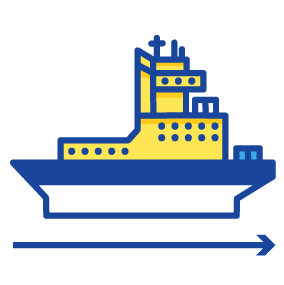Vessels in Antarctica
The Swedish Antarctic Act (2006:924) also contains special provisions governing vessel presence and operation in Antarctica. Larger vessels must have closed waste systems, storing any oil residue, chemical mixtures, and all waste on board so as not to pollute the marine environment. Vessels located south of 60°S are not allowed to dump polluted ballast or tank washings into the ocean.
The provisions that apply to smaller vessels (with a maximum of ten passengers) are somewhat different. Untreated toilet waste and food residue may be released into the ocean if the vessel is more than 12 nautical miles from land or the ice shelf, and providing the waste is atomised in accordance with applicable regulations. Otherwise, the same provisions that apply to larger vessels are applicable.
Anyone arranging a trip to Antarctica must take preparatory protective measures to prevent environmentally hazardous accidents. The organisation conducting the activity will be liable for the costs incurred if an environmentally hazardous accident occurs. Under the Swedish Antarctic Act, tour operators must also have a readiness plan. These provisions apply to visits both on land and at sea.

